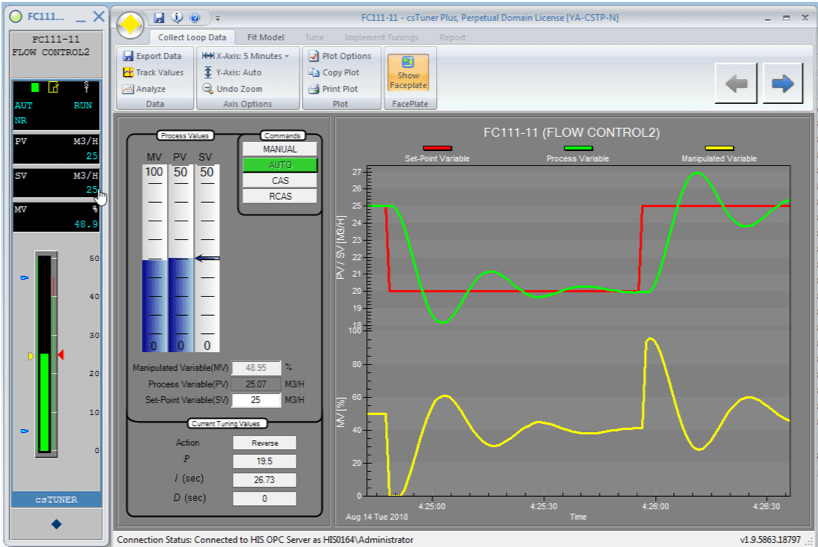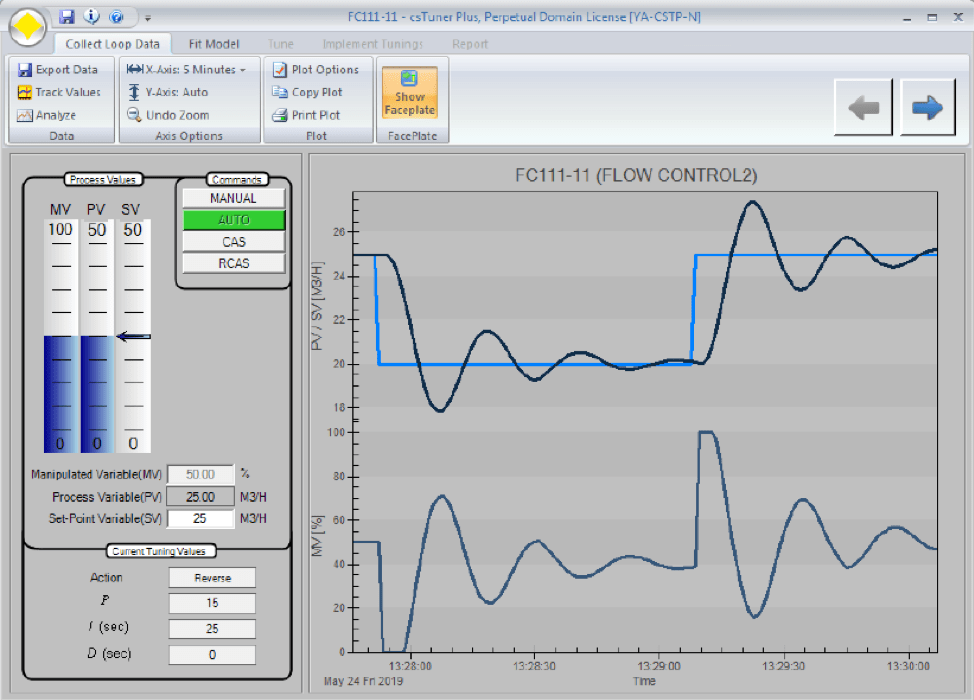csTuner is an award-winning technology that simplifies the optimization of PID controllers. It is an online PID diagnostic and optimization solution that integrates seamlessly with Yokogawa's CENTUM VP and CS3000 (R3) distributed control systems. csTuner is configurable to support access to either real-time process data or process data that is stored in a database such as a historian. Analysis performed by csTuner allows users to better understand business-critical process dynamics and to improve overall production performance.
Some estimates indicate that more than 65% of process PID loops are underperforming with up to 30% operating in manual mode; both of these conditions result in reduced process stability, product variations, increased energy expenses and additional equipment wear.

A well-controlled process has less variability in the measured process variable (PV), so the process can be operated close to the maximum profit constraint.
csTuner empowers users to quickly and consistently model the dynamics of a given production process and to tune it for improved performance. Tuning parameters produced by csTuner can be customized to meet the user's unique control objective and assure more optimal performance. Key attributes of csTuner include the following:
NSS Modeling Innovation
Equipped with Control Station's patented NSS modeling innovation, csTuner is uniquely suited to analyzing non-steady state process data collected directly from the DCS and to provide superior PID controller tuning parameters by:
- Windowing in on segments of process data that are associated with any/all experiments performed (i.e. bump tests)
- Centering the process model over the entire range of process data under review

Benefits of regular PID tuning can be realized throughout a production facility.
Customizable Controller Performance
The adjustable closed-loop time constant allows users to tailor a controller's performance. By choosing from among a wide range of possible settings, users can achieve control spanning from aggressive to conservative.
Comparative Statistics and Stability Analysis
csTuner assists users with tuning by providing access to valuable and dynamic analysis. Numeric statistics and performance graphics reveal the relative improvement to or deterioration of control with:
- Values for widely accepted performance statistics such as Settling Time, Percent Overshoot, Decay Ratio and Controller Output Travel.
- Advanced robustness analysis used in calculating process stability and maintaining safe operations.
Simulated Controller Response
Dynamic simulation of the PID controller's response curve permits users to evaluate proposed tuning parameters before implementing them in the Yokogawa DCS. In particular, users benefit from seeing:
- Side-by-side comparison of existing vs. proposed tuning parameters
- Optional controller settings, including P-Only, PI, PID, and PID with filter
Documentation and Reporting
csTuner provides documentation of the decision-making process and presents appropriate information in an easy-to-follow report, including:
- Process data used and the associated model fit and simulated PID response graphics
- Performance statistics and related stability analysis
- Model parameters and both the related data properties and controller scaling values such as PV Min/Max and CO Min/Max

csTuner seamlessly integrates with Yokogawa’s CENTUM VP DCS.
Recursos
Tuning PID controllers can seem a mystery. Parameters that provide effective control over a process one day fail to do so the next. The stability and responsiveness of a process seem to be at complete odds with each other. And controller equations include subtle differences that can baffle even the most experienced practitioners.
¿En busca de información adicional sobre Yokogawa Iberia, tecnología y soluciones?
Contáctenos
